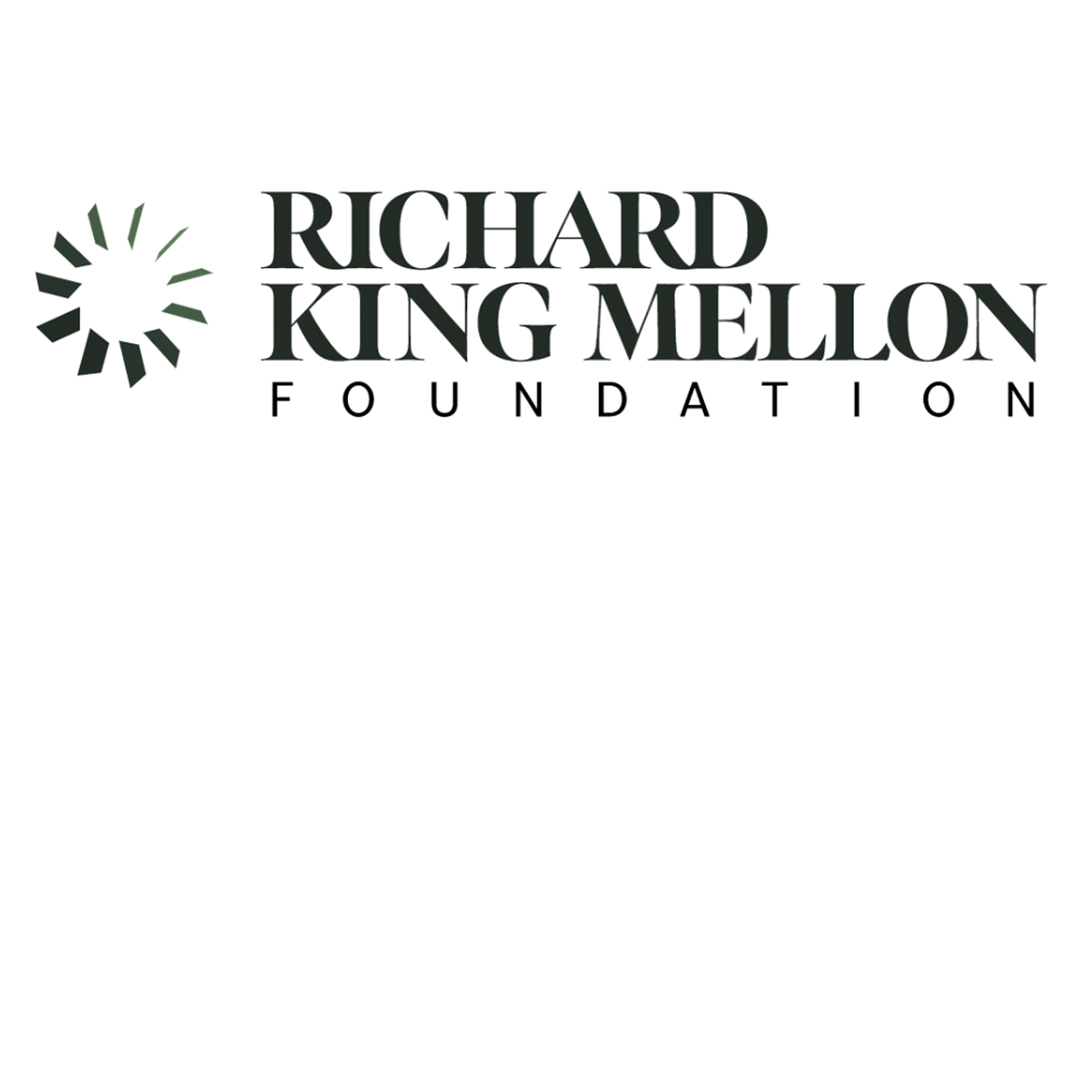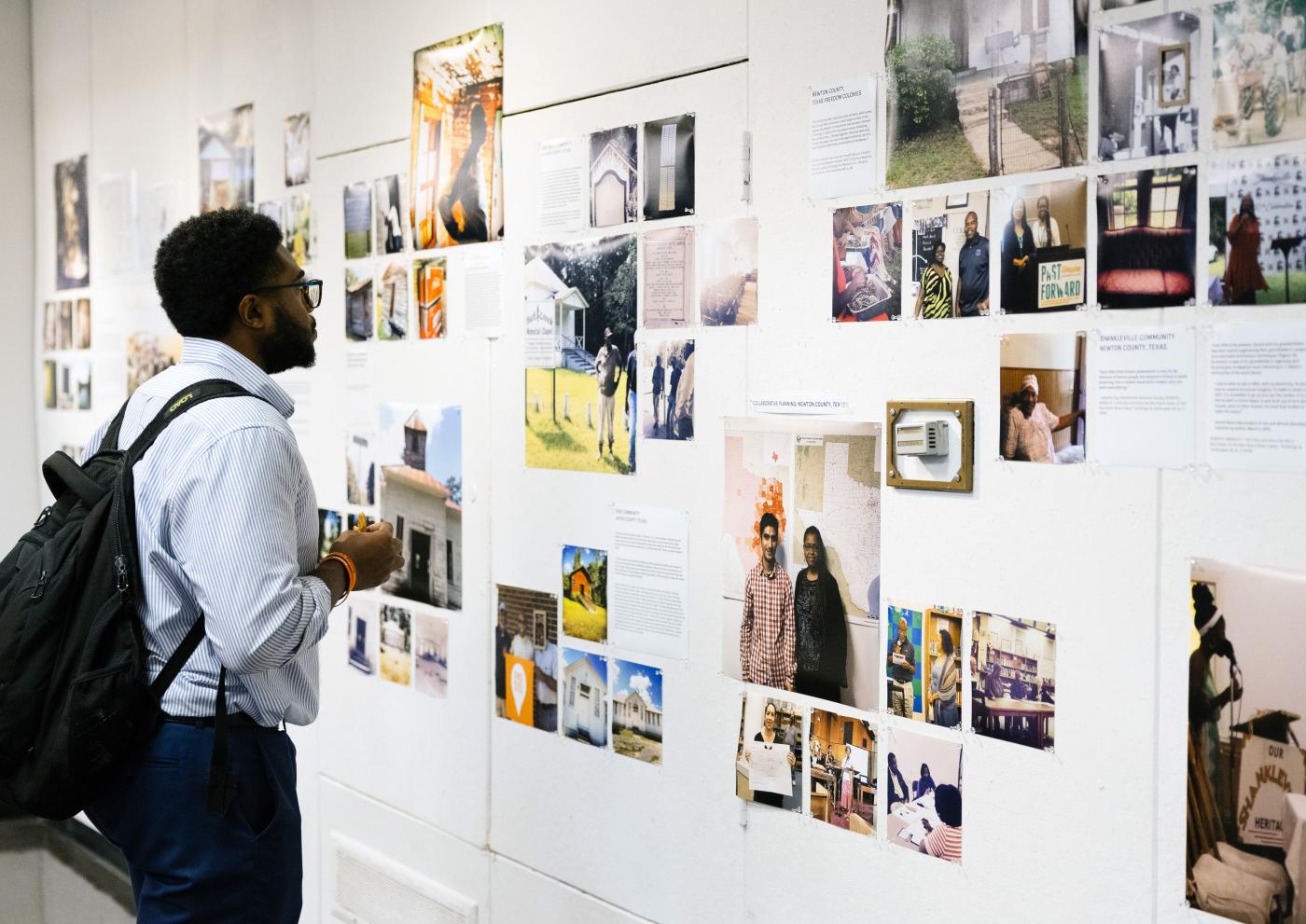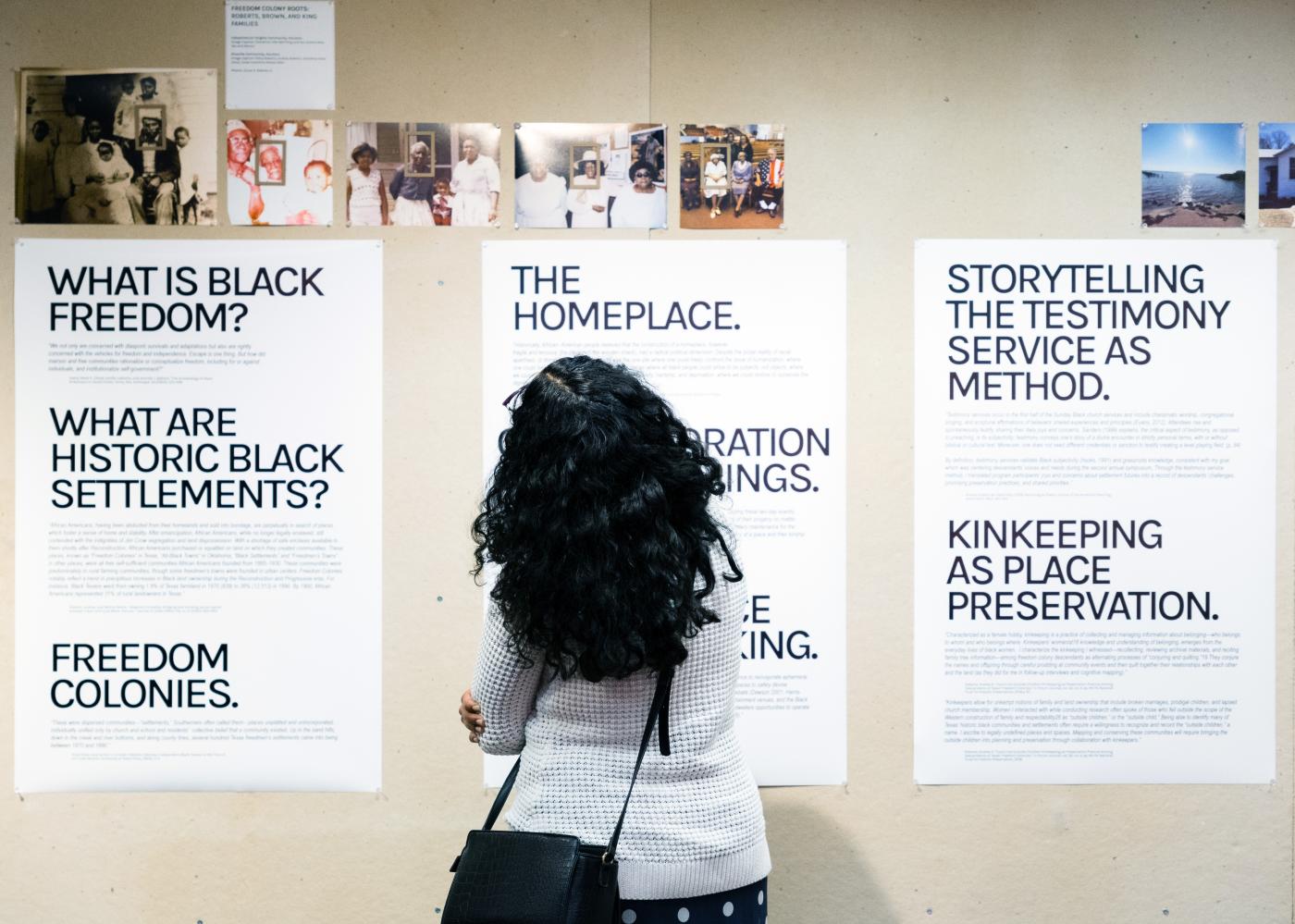
Mellon Foundation Awards 3 Million to UVA to Launch the Outsider Preservation Initiative
The Out(sider) Preservation Initiative Aims to Tell a New Foundational Story of the United States, Commemorating Black Place Preservation and Persistence

Dr. Andrea Roberts, associate professor at the University of Virginia’s School of Architecture and Faculty Director of the Center for Cultural Landscapes (CCL), has been awarded a $3 million grant by the Mellon Foundation to launch the Out(sider) Preservation initiative, emerging from her research and scholarship on grassroots Black descendent preservation. The grant will support the program for three years, investing in commemorative practices and storytelling that reflect place-based migratory histories and bring those considered on the margins of state-sponsored preservation and placemaking to the center of the American commemoration landscape.
This initiative emerges from Dr. Roberts’ The Texas Freedom Colonies Project (TXFC Project), which for over eight years, has documented how Black descendent communities engage in commemoration through performance and oral traditions in ways that motivate descendants to return to their forefathers’ and mothers’ settlements to participate in place preservation and recognition. As part of the TXFC Project, which started at UT Austin, grew at Texas A&M, and is currently housed at the Center for Cultural Landscapes at UVA, Dr. Roberts, with volunteers and students, richly mapped hundreds of settlements via the interactive Texas Freedom Colonies Project™ Atlas and Study, which spatializes sites’ histories, structures, and commemorative landscapes through participatory action research methods, including oral history interviews, counternarrative construction, and archival recovery.
“Freedom colony descendant activities and strategies are not necessarily recognized or defined within the realm of preservation because they are more closely related to intangible or associative heritage about religion, arts, or traditions rather than buildings,” said principal investigator Dr. Roberts. “Engagement with descendants by government-led or higher education institutions often undermine descendants’ agency and sovereignty by exerting excessive control over their cultural inheritance and goal setting. The Out(sider) Preservation Initiative will co-create with descendants collaborative projects that elevate and secure their place knowledge, while telling a fuller history of commemoration and placemaking in the United States.”

Making a deliberate shift from a singular focus on Texas settlements to an new emphasis on diasporic communities, Dr. Roberts will lead the Out(sider) Preservation initiative, focusing on ethnographic and archival documentation of migratory routes to and from historic Black settlements in Texas (founded in 1865-1930), across the diverse geographies of Alabama, Georgia, Virginia, Louisiana, and California. The project will include the creation of an online platform for virtually accessing and viewing commemorative and artistic practices of placemaking associated with the Texas Freedom Colonies and their diaspora of descendants, settled across key states. Borrowing from the tradition of outsider, intuitive, or visionary artists who are often self-taught and led by a unique personal vision, the Out(sider) Preservation initiative supports lay preservationists and artists seeking ways to commemorate settlements’ foundational stories or re-activate spaces in freedom colonies that can contribute to local ideas of community building. These storytelling and placekeeping practices will be enhanced through the project’s public symposia, student-created podcast, skill-building workshops, and the launch of the Freedom Colony Fellowship program, providing grants for emerging artists and descendants seeking more innovative and reparative ways to approach remembering places and placemakers.
The interactive online platform allows the public, scholars, historians, and genealogists to learn about commemorative practices, while enabling descendants of freedom colonies control over their heritage, local knowledge, and the sacred nature of their commemorative activities through a secure “descendant-only” virtual space where descendants can self-organize, plan events, and reunite with family and social networks. The Center for Cultural Landscapes at UVA, with UVA Library (including its Scholars' Lab and Institute for Advanced Technology in the Humanities) will collaborate with descendant communities, faculty, and students to design and build the project’s online platform, in consultation with historic sites, museums and archives, including the Smithsonian’s National Museum of African American History and Culture’s Robert F. Smith Center, Reconstruction Era National Historical Park, Dumbarton Oaks Garden and Landscape Studies, and the California African American Museum.
Additionally, the project will create a new preservation pedagogy that builds upon Dr. Roberts’ existing curriculum and develops a model of mutual co-learning through transdisciplinary engagement. Descendent community members, students, and invited artists and scholars will all collaboratively participate in graduate and undergraduate courses at the School of Architecture at UVA. The initiative creates various learning and service opportunities for students to support descendent-led commemorative and preservation projects, while also gaining insight on grassroots approaches to place creation, stewardship, and historic preservation.
“Andrea’s innovative research methods and scholarship, always in careful partnership with community members, are bringing forward the significance of expanding how and what we commemorate and preserve,” said Malo A. Hutson, Dean of the UVA School of Architecture and Edward E. Elson Professor. “We are thrilled for her and grateful for the Mellon Foundation’s generous support of this project that empowers Black descendant communities to tell their stories — of the people and places that are part of their rich history and the larger American commemorative landscape.”

About the Andrew W. Mellon Foundation
The Andrew W. Mellon Foundation is the nation’s largest supporter of the arts and humanities. Since 1969, the Foundation has been guided by its core belief that the humanities and arts are essential to human understanding. The Foundation believes that the arts and humanities are where we express our complex humanity, and that everyone deserves the beauty, transcendence, and freedom that can be found there. Through our grants, we seek to build just communities enriched by meaning and empowered by critical thinking, where ideas and imagination can thrive. Learn more at mellon.org.
Media Contact:
Sneha Patel
Executive Director of Communications
